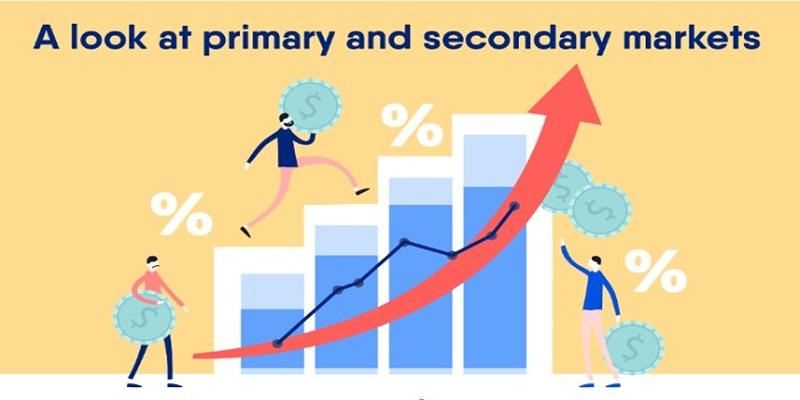Advertisement
When is the Right Time to Buy a House?
Sep 15, 2024 By Kelly Walker
Buying a house is often one of our most significant financial decisions. It's a decision that comes with a multitude of factors to consider, and timing is crucial. But when is the right time to buy a house? Should you dive into the market as soon as possible or wait for the perfect moment? In this article, we'll explore the various factors that influence the timing of a home purchase and provide insights to help you make an informed decision.
Market Conditions
One of the primary factors influencing the timing of buying a house is the current market conditions. Real estate markets can be highly volatile, fluctuating prices based on economic and social factors. So, it's essential to keep an eye on these conditions.
Buyer's Market vs. Seller's Market
Real estate markets are often categorized as either a buyer's market or a seller's market. In a buyer's market, more homes are available than buyers, which typically leads to lower prices and more favorable terms for buyers. On the other hand, a seller's market occurs when there are more buyers than available homes, leading to higher prices and more competition among buyers.
The right time to buy a house can vary depending on which type of market is prevalent. In a buyer's market, you may have the advantage of negotiating a better deal and taking your time to choose the right home. In a seller's market, you might need to act quickly and be prepared to pay a premium for the property you desire.
Interest Rates

Interest rates play a significant role in the decision to buy a house. Mortgage interest rates can impact the affordability of your home purchase. When interest rates are low, it's generally a more favorable time to buy because you can secure a mortgage with a lower interest rate, resulting in lower monthly payments and potentially saving thousands of dollars over the life of the loan.
Conversely, borrowing money increases when interest rates are high, making homeownership less affordable. To determine the right time to buy a house, keep a close watch on interest rate trends and consider speaking with a mortgage professional to understand how interest rates impact your financial situation.
Personal Finances: The Cornerstone of Homeownership
Your financial situation is the cornerstone upon which your homeownership dreams are built. It's not just about crunching numbers; it's about securing your financial stability and peace of mind. Here's how your financial readiness can guide your decision on when to buy a house.
Firstly, stability is key. Ensure your income is steady and secure, as it forms the basis of your mortgage payments. A reliable job and a consistent income stream are invaluable when taking on a long-term commitment like a mortgage.
Secondly, your credit score matters. A good credit score opens doors to favorable mortgage terms. Lenders use this score to determine the interest rate you qualify for, impacting your monthly payments. If your credit score needs improvement, consider boosting it before diving into the housing market.
Thirdly, your debt-to-income ratio is another critical metric. It's the balance between your monthly debt payments and your income. Lowering your debt and increasing your income can enhance your ability to secure a favorable mortgage offer.
Moreover, don't forget savings. You'll need a healthy reserve for a down payment and closing costs. A larger down payment can translate to lower monthly mortgage payments and potentially help you avoid additional expenses like private mortgage insurance (PMI).
Lastly, maintain an emergency fund. Homeownership often surprises with unexpected expenses, such as repairs and maintenance. An emergency fund ensures you're prepared to handle these financial curveballs without jeopardizing your financial stability.
Life Events and Goals
Your life events and goals can greatly influence the timing of your home purchase. Consider the following questions:

Family Planning: Are you planning to start a family or expand your existing one? If so, you may want to buy a house accommodating your future needs.
Career: Do you anticipate a career change or relocation shortly? Factor in your job stability and location when deciding to buy.
Investment: Are you buying a home primarily as an investment? If so, research the local real estate market and property values to determine if it's a good time to buy for investment purposes.
Long-Term vs. Short-Term: Are you planning to stay in the area long-term, or is this a short-term living arrangement? Your intended length of stay can impact whether it's the right time to buy.
Seasonal Considerations
Believe it or not, the seasons can also play a role in deciding when to buy a house. Spring and summer are the busiest seasons for home buying, with more listings and buyers in the market. While this can provide more options, it can also increase competition and potentially higher prices.
On the other hand, the fall and winter months often see a decrease in market activity, which can result in less competition and potentially lower prices. Sellers may be more motivated to negotiate during the off-season.
Market Predictions
While predicting the real estate market with absolute certainty is impossible, you can consult with experts and analysts who track market trends. They can provide insights into whether property values in your desired location are expected to rise or fall shortly. This information can be valuable in your decision-making process.
Mortgage Pre-Approval
One proactive step you can take to determine the right time to buy is getting pre-approved for a mortgage. Mortgage pre-approval includes a lender examining your financial situation and credit history to establish the borrowing amount and the interest rate. This gives you a clear understanding of your budget and demonstrates to sellers that you're a serious and qualified buyer.
Conclusion
Determining the right time to buy a house is a complex decision influenced by market conditions, interest rates, personal finances, and life events. Real estate markets are cyclical, and each individual's ideal time can vary. Ultimately, your decision should align with your long-term goals and financial well-being.
Take your time, conduct thorough research, and seek expert advice. Remember that timing is only one aspect; ensuring you're financially prepared and emotionally ready for homeownership is equally important. Whether you buy during a buyer's or seller's market, what matters most is the right time for you and your family's future.
Advertisement

Which Is Better, Coinsurance or Copays?

A Comprehensive Guide to Selling Stock in Your Company

A Look at Primary and Secondary Markets

Best Online Bookkeeping Classes

Everything You Should Know About Mechanical Investing

The Best Ebike (Electric Bike) Insurance

Investing in Stock Rights and Warrants

Capital One SavorOne Rewards Credit Card Review

Are REITs Beneficial During a High-Interest Era?

